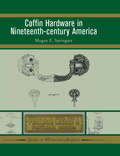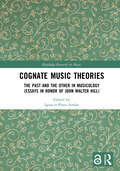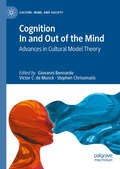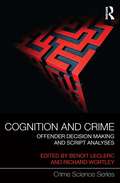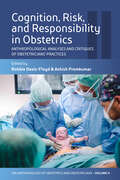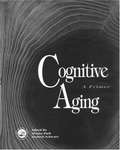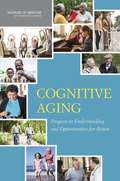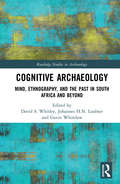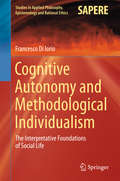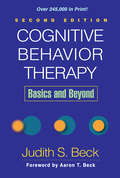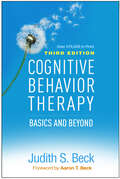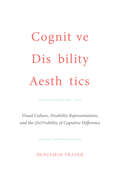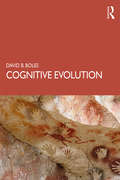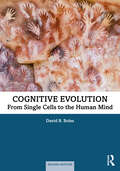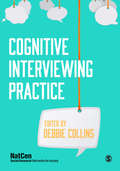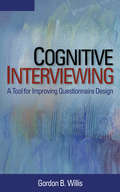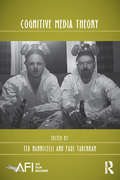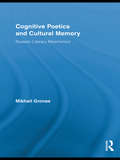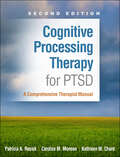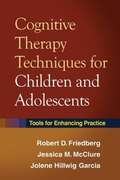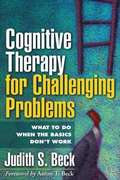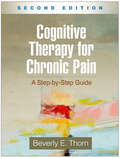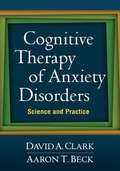- Table View
- List View
Coffin Hardware in Nineteenth-century America: Coffin Hardware In Nineteenth Century America (Guides To Historical Artifacts Ser. #5)
by Megan E SpringateUsing data from archaeological excavations, patent filings, and marketing catalogs, this book provides a broad view of the introduction, spread, and use of mass-produced coffin hardware in North America. At the book's heart is a standardized typology of coffin hardware that recognizes stylistic and functional changes and a fresh look at the meanings and uses of the various motifs and decorative elements. Within the discussion of mass-produced coffin hardware in North America is new work connecting the North American industry with its British antecedents and a fresh analysis of the prime factors that led to the introduction and spread of mass-produced coffin hardware. Extensively illustrated with examples of coffin hardware to aid scholars and professionals in identification.
Cognate Music Theories: The Past and the Other in Musicology (Essays in Honor of John Walter Hill) (Routledge Research in Music)
by Ignacio Prats-ArolasThis volume explores the possibilities of cognate music theory, a concept introduced by musicologist John Walter Hill to describe culturally and historically situated music theory.Cognate music theories offer a new way of thinking about music theory, music history, and the relationship between insider and outsider perspectives when researchers mediate between their own historical and cultural position, and that of the originators of the music they are studying. With contributions from noted scholars of musicology, music theory, and ethnomusicology, this volume develops a variety of approaches using the cognate music theory framework and shows how this concept enables more nuanced and critical analyses of music in historical context.Addressing topics in music from the seventeenth to nineteenth centuries, this volume will be relevant to musicologists, music theorists, and all researchers interested in reflecting critically on what it means to construct a theory of music.
Cognition In and Out of the Mind: Advances in Cultural Model Theory (Culture, Mind, and Society)
by Victor C. de Munck Giovanni Bennardo Stephen ChrisomalisThis edited collection presents an agenda for the interdisciplinary study of anthropology and cognitive science. It consists of fifteen chapters written by international experts on the relationship between culture and cognition. This volume is unique in that it includes both inside (i.e., shared mental templates) and outside (i.e., extended, embedded, enactive and ecological) theories of cognition. The contributors come from the diverse disciplinary fields of anthropology, linguistics, archaeology, and cognitive science. The aim is to investigate the mental production of shared knowledge, goals, and desires around which human social life revolves. The coverage spans cultural and linguistic evolution, the importance of local histories, and the role of cultural models to understand and interact with the world. Drawing on cultural model theory, this volume is an invaluable resource for linguists, cognitive scientists, anthropologists, and other social scientists willing to explore and understand how the sharedness of culture can bond us all together across relative cultural differences and (mis)perceived divisions.
Cognition and Crime: Offender Decision Making and Script Analyses (Crime Science Series)
by Richard Wortley Benoit LeclercThe rational choice perspective developed by Cornish and Clarke in 1986 provides criminologists with a valuable and practical framework for purposes of crime control and prevention. More than twenty-five years later, Cognition and Crime pushes the boundaries of this field of research by bringing together international leading (or emerging) researchers in this area of script analysis into a single volume for the first time. It also presents a series of original contributions on offender decision-making during crime and crime script analysis as well as offering a critical perspective of what could be achieved in the future to further help develop this field of research for prevention purposes. In addition, each empirical chapter treats a specific and important form of crime such as stalking violence, drug dealing, human trafficking for sexual exploitation, child sexual abuse, and transnational illegal market of endangered species. Academics and students from various backgrounds, and interested in investigating and preventing crime, will benefit from this book as it applies crime script analysis and discusses new and future developments in regards to this approach and the rational choice perspective. This volume will be of particular relevance for practitioners such as police officers and crime investigators.
Cognition, Risk, and Responsibility in Obstetrics: Anthropological Analyses and Critiques of Obstetricians’ Practices (The Anthropology of Obstetrics and Obstetricians: The Practice, Maintenance, and Reproduction of a Biomedical Profession #2)
by Robbie Davis-Floyd and Ashish PremkumarVolume 2 in this landmark 3-volume series The Anthropology of Obstetrics and Obstetricians: The Practice, Maintenance, and Reproduction of a Biomedical Profession looks at cognition, risk, and responsibility in obstetrics. This volume contains social science analyses of Swiss, Chilean, Mexican, US, Greek, and Irish obstetrics and obstetricians, particularly around their reasons for the overuse of cesareans; a chapter on "4 Stages of Cognition" and a condition called "Substage," which describes how these concepts apply to obstetricians; and a chapter on why obstetricians fear home birth. This book is a must-read for students, social scientists, and all maternity care practitioners who seek to understand obstetricians' differing ideologies and motives for practicing as they do. An excerpt from Vania Smith-Oka and Lydia Dixon's chapter: For systemic changes to occur, we must understand doctors’ decision-making rationales and take their fear-based perspectives about risk and responsibility into account, while also paying attention to the concerns raised by scholars and activists.
Cognitive Aging: A Primer
by Denise Park Nobert SchwarzAs our society ages, the topic of cognitive aging is becoming increasingly important. This volume provides an accessible overview of how the cognitive system changes as a function of normal aging. Building on the successful first edition, this volume provide an even more comprehensive coverage of the major issues affecting memory, attention, language, speech and other aspects of cognitive functioning. The essential chapters from the first edition have been thoroughly revised and updated and new chapters have been introduced which draw in neuroscience studies and more applied topics. In addition, contributors were encouraged to ensure their chapters are accessible to students studying the topic for the first time. This therefore makes the volume appealing as a textbook on senior undergraduate and graduate courses.
Cognitive Aging: Progress in Understanding and Opportunities for Action
by Dan G. BlazerFor most Americans, staying "mentally sharp" as they age is a very high priority. Declines in memory and decision-making abilities may trigger fears of Alzheimer's disease or other neurodegenerative diseases. However, cognitive aging is a natural process that can have both positive and negative effects on cognitive function in older adults - effects that vary widely among individuals. At this point in time, when the older population is rapidly growing in the United States and across the globe, it is important to examine what is known about cognitive aging and to identify and promote actions that individuals, organizations, communities, and society can take to help older adults maintain and improve their cognitive health. "Cognitive Aging" assesses the public health dimensions of cognitive aging with an emphasis on definitions and terminology, epidemiology and surveillance, prevention and intervention, education of health professionals, and public awareness and education. This report makes specific recommendations for individuals to reduce the risks of cognitive decline with aging. Aging is inevitable, but there are actions that can be taken by individuals, families, communities, and society that may help to prevent or ameliorate the impact of aging on the brain, understand more about its impact, and help older adults live more fully and independent lives. Cognitive aging is not just an individual or a family or a health care system challenge. It is an issue that affects the fabric of society and requires actions by many and varied stakeholders. "Cognitive Aging" offers clear steps that individuals, families, communities, health care providers and systems, financial organizations, community groups, public health agencies, and others can take to promote cognitive health and to help older adults live fuller and more independent lives. Ultimately, this report calls for a societal commitment to cognitive aging as a public health issue that requires prompt action across many sectors.
Cognitive Archaeology: Mind, Ethnography, and the Past in South Africa and Beyond (Routledge Studies in Archaeology)
by David Whitley Johannes Loubser Gavin WhitelawCognitive Archaeology: Mind, Ethnography, and the Past in South Africa and Beyond interprets the social and cultural lives of the past, in part by using ethnography to build informed models of past cultural and social systems and partly by using natural models to understand symbolism and belief. How does an archaeologist interpret the past? Which theories are relevant, what kinds of data must be acquired, and how can interpretations be derived? One interpretive approach, developed in southern Africa in the 1980s, has been particularly successful even if still not widely known globally. With an expressed commitment to scientific method, it has resulted in deeper, well-tested understandings of belief, ritual, settlement patterns and social systems. This volume brings together a series of papers that demonstrate and illustrate this approach to archaeological interpretation, including contributions from North America, Western Europe and sub-Saharan Africa, in the process highlighting innovative methodological and substantive research that improves our understanding of the human past. Aimed at theoretically-oriented archaeological researchers, it will be also relevant to method and theory courses and post-graduate students due to its theoretical and methodological emphasis. Further, it will have interest for heritage professionals working with Indigenous communities.
Cognitive Autonomy and Methodological Individualism: The Interpretative Foundations of Social Life (Studies in Applied Philosophy, Epistemology and Rational Ethics #22)
by Francesco Di Iorio"Di Iorio offers a new approach to Hayek's Sensory Order, linking neuroscience to the old Verstehen tradition and to contemporary theories of self-organizing systems; this should be on the reading list of everyone who is interested in Hayek's thought. " Barry Smith University at Buffalo, editor of The Monist "This impressive and well-researched book breaks new ground in our understanding of F. A. Hayek and of methodological individualism more generally. It shows that methodological individualism sanctions neither an atomistic view of society nor a mechanical determinism. The book carefully analyzes an important tradition in the social sciences, and compares it to many important philosophical, sociological and economic systems of thought. This is an enlightening book for all scholars interested in the methodological problems of the social sciences. " Mario J. Rizzo New York University "One of Hayek's most important contributions is his linking of complex methodological individualism, which deals with the emergence of spontaneous orders and unintended collective structures in complex self-organizing social systems, with a cognitive psychology. What makes Francesco Di Iorio's book of great interest is that, by building on Hayek's seminal book The Sensory Order, it deepens the connections between cognition and rules of just conduct, taking into account relevant theories on subjectivity and consciousness such as phenomenology, hermeneutics and enactivism. " Jean Petitot École des Hautes Études en Sciences Sociales, EHESS, Paris "In this thoughtful and enlightening book Francesco Di Iorio uses Hayek's cognitive psychology as the starting point for investigation of the relationship between the autonomy of the agent and socio-cultural influences within methodological individualism. The book provides an illuminating and innovative analysis of a central issue in the philosophy of social science by setting Hayek's view on mind and action in fruitful relation to approaches such as Gadamer's hermeneutics, Merleau-Ponty's phenomenology, Varela's and Maturana's enaction, Boudon's interpretative sociology, Popper's fallibilism and Mises' praxeology. One of the most interesting aspects of this book is its argument that hermeneutics and fallibilism refer not to two different methods but to the same one. " Dario Antiseri Emeritus Professor at LUISS University, Rome "Francesco Di Iorio's book explores, in an original way, the connections between Hayek's methodological individualism and his fascinating idea that human mind is both an interpretative device and a self-organizing system. It is a brilliant, clearly written work, characterized by a certain intellectual courage, which makes a remarkable contribution to the sociology of knowledge. " Gérald Bronner Paris Diderot University
Cognitive Behavior Therapy, Second Edition
by Aaron Beck Judith BeckThe leading text for students and practicing therapists who want to learn the fundamentals of cognitive behavior therapy (CBT), this book is eminently practical and authoritative. In a highly accessible, step-by-step style, master clinician Judith S. Beck demonstrates how to engage patients, develop a sound case conceptualization, plan treatment, and structure sessions effectively. Core cognitive, behavioral, and experiential techniques are explicated and strategies are presented for troubleshooting difficulties and preventing relapse. An extended case example and many vignettes and transcripts illustrate CBT in action. Reproducible clinical tools can be downloaded and printed in a convenient 8 1/2" x 11" size. New to This Edition Reflects over 15 years of research advances and the author's ongoing experience as a clinician, teacher, and supervisor. Chapters on the evaluation session and behavioral activation. Increased emphasis on the therapeutic relationship, building on patients' strengths, and homework. Now even more practical: features reproducibles and a sample case write-up.
Cognitive Behavior Therapy, Third Edition: Basics and Beyond
by Judith S. BeckHundreds of thousands of clinicians and graduate students have relied on this text--now significantly revised with more than 50% new material--to learn the fundamentals of cognitive behavior therapy (CBT). Leading expert Judith S. Beck demonstrates how to engage patients, develop a sound case conceptualization, plan individualized treatment, structure sessions, and implement core cognitive, behavioral, and experiential techniques. Throughout the book, extended cases of one client with severe depression and another with depression, anxiety, and borderline personality traits illustrate how a skilled therapist delivers CBT and troubleshoots common difficulties. Adding to the third edition's utility, the companion website features downloadable worksheets and videos of therapy sessions. New to This Edition *Chapter on the therapeutic relationship. *Chapter on integrating mindfulness into treatment. *Presents recovery-oriented cognitive therapy (CT-R)--which emphasizes clients&’ aspirations, values, and positive adaptation--alongside traditional CBT. *Pedagogical features: clinical tips, reflection questions, practice exercises, and videos at the companion website. *New case examples featuring clients with more complex problems. *Demonstrates how to integrate strategies from other modalities, such as acceptance and commitment therapy, dialectical behavior therapy, and mindfulness-based cognitive therapy.
Cognitive Disability Aesthetics: Visual Culture, Disability Representations, and the (In)Visibility of Cognitive Difference (Toronto Iberic)
by Benjamin FraserCognitive Disability Aesthetics explores the invisibility of cognitive disability in theoretical, historical, social, and cultural contexts. Benjamin Fraser’s cutting edge research and analysis signals a second-wave in disability studies that prioritizes cognition. Fraser expands upon previous research into physical disability representations and focuses on those disabilities that tend to be least visible in society (autism, Down syndrome, Alzheimer's disease, schizophrenia). Moving beyond established literary approaches analyzing prose representations of disability, the book explores how iconic and indexical modes of signification operate in visual texts. Taking on cognitive disability representations in a range of visual media (painting, cinema, and graphic novels), Fraser showcases the value of returning to impairment discourse. Cognitive Disability Aesthetics successfully reconfigures disability studies in the humanities and exposes the chasm that exists between Anglophone disability studies and disability studies in the Hispanic world.
Cognitive Evolution
by David B. BolesCognitive Evolution provides an in-depth exploration of the history and development of cognition, from the beginning of life on Earth to present-day humans. Drawing together evolutionary and comparative research, this book presents a unique perspective on the evolution of human cognition. Adopting an information processing perspective – that is, from inputs to outputs, with all the mental processes in between, Boles provides a systematic overview of the evolutionary development of cognition and of its sensation, movement, and perception components. The book is supported by long-established evolutionary theories and backed up by a wealth of recent research from the growing field of cognitive evolution and cognitive neuroscience to provide a comprehensive text on the subject. Cognitive Evolution is an essential read for advanced undergraduates and postgraduate students of cognitive and evolutionary psychology.
Cognitive Evolution: From Single Cells to the Human Mind
by David B. BolesCognitive Evolution provides an in-depth exploration of the natural history of cognition, from the beginning of life on Earth to present-day humans. Drawing together evolutionary, comparative, and neuroscience research, the book brings a unique cognitive perspective to evolutionary psychology. The second edition features the latest research and illustrations on emerging topics, making it a true update of the field. After introducing evolution, Boles adopts an information processing perspective – from inputs to outputs, with all the mental processes in between to provide a systematic overview of the evolution of cognition, including its sensory, motoric, perceptual, and cognitive components. The combination of evolutionary, comparative, and neuroscience perspectives provides an insight on topics like vision, handedness, tools and planning, spatial perception, pattern recognition, memory, language, and consciousness. Cognitive Evolution is a comprehensive, essential read for advanced undergraduate and postgraduate students of cognitive and evolutionary psychology. Researchers will find it a useful and insightful synthesis of the field, yet even the curious public will find in it much that is surprising and enlightening.
Cognitive Interviewing Practice
by Debbie CollinsThe use of the cognitive interviewing method for survey question testing has proliferated and evolved over the past 30 years. In more recent years the method has been applied to the evaluation of information letters and leaflets and to research consent forms. This book provides a practical handbook for implementing cognitive interviewing methods in the context of applied social policy research, based on the approach used by the authors at the NatCen Social Research (NatCen) where cognitive interviewing methods have been used for well over a decade. The book provides a justification for the importance of question testing and evaluation and discusses the position of cognitive interviewing in relation to other questionnaire development and evaluation techniques. Throughout the book, the focus is on providing practical and hands-on guidance around elements such as sampling and recruitment, designing probes, interviewing skills, data management and analysis and how to interpret the findings and use them to improve survey questions and other documents. The book also covers cognitive interviewing in different survey modes, in cross national, cross cultural and multilingual settings and discusses some other potential uses of the method.
Cognitive Interviewing Practice
by Debbie CollinsThe use of the cognitive interviewing method for survey question testing has proliferated and evolved over the past 30 years. In more recent years the method has been applied to the evaluation of information letters and leaflets and to research consent forms. This book provides a practical handbook for implementing cognitive interviewing methods in the context of applied social policy research, based on the approach used by the authors at the NatCen Social Research (NatCen) where cognitive interviewing methods have been used for well over a decade. The book provides a justification for the importance of question testing and evaluation and discusses the position of cognitive interviewing in relation to other questionnaire development and evaluation techniques. Throughout the book, the focus is on providing practical and hands-on guidance around elements such as sampling and recruitment, designing probes, interviewing skills, data management and analysis and how to interpret the findings and use them to improve survey questions and other documents. The book also covers cognitive interviewing in different survey modes, in cross national, cross cultural and multilingual settings and discusses some other potential uses of the method.
Cognitive Interviewing: A Tool for Improving Questionnaire Design
by Gordon B. Willis"As both an academic instructor in questionnaire design and a research design methodologist for the federal government, I feel this book is very timely, useful for students and practitioners, and unique in its use of real world practical examples that most everyone can relate."—Terry Richardson, General Accounting Office "The combination of theory and practical application will make this a useful book for students as well as professionals who want to learn how to incorporate cognitive interviewing into the questionnaire design process."—Rachel Caspar, RTI International The design and evaluation of questionnaires—and of other written and oral materials—is a challenging endeavor, fraught with potential pitfalls. Cognitive Interviewing: A Tool for Improving Questionnaire Design describes a means of systematically developing survey questions through investigations that intensively probe the thought processes of individuals who are presented with those inquiries. The work provides general guidance about questionnaire design, development, and pre-testing sequence, with an emphasis on the cognitive interview. In particular, the book gives detailed instructions about the use of verbal probing techniques, and how one can elicit additional information from subjects about their thinking and about the manner in which they react to tested questions. These tools help researchers discover how well their questions are working, where they are failing, and determine what they can do to rectify the wide variety of problems that may surface while working with questionnaires. Cognitive Interviewing is ideally suited as a course text for advanced undergraduate and graduate research courses across the social sciences. Professional researchers and faculty in the social sciences, as well as practice fields such as medicine, business, and education, will also find this an invaluable reference for survey research. There is no other book on the market that covers cognitive interviewing as applied to questionnaire design.
Cognitive Learning Theory and Cane Travel Instruction: A New Paradigm
by Richard MettlerA description of cane travel instruction from the structured discovery methodology.
Cognitive Media Theory (AFI Film Readers)
by Ted Nannicelli Paul TaberhamAcross the academy, scholars are debating the question of what bearing scientific inquiry has upon the humanities. The latest addition to the AFI Film Readers series, Cognitive Media Theory takes up this question in the context of film and media studies. This collection of essays by internationally recognized researchers in film and media studies, psychology, and philosophy offers film and media scholars and advanced students an introduction to contemporary cognitive media theory—an approach to the study of diverse media forms and content that draws upon both the methods and explanations of the sciences and the humanities. Exploring topics that range from color perception to the moral appraisal of characters to our interactive engagement with videogames, Cognitive Media Theory showcases the richness and diversity of cognitivist research. This volume will be of interest not only to students and scholars of film and media, but to anyone interested in the possibility of a productive relationship between the sciences and humanities.
Cognitive Poetics and Cultural Memory: Russian Literary Mnemonics (Routledge Research In Cultural And Media Studies #28)
by Mikhail GronasIn this volume, Gronas addresses the full range of psychological, social, and historical issues that bear on the mnemonic existence of modern literary works, particularly Russian literature. He focuses on the mnemonic processes involved in literary creativity, and the question of how our memories of past reading experiences shape the ways in which we react to literary works. The book also examines the concrete mnemonic qualities of poetry, as well as the social uses to which poetry memorization has historically been put to use. This study will appeal to scholars of cognitive poetics, Russian literature, and cultural studies.
Cognitive Processing Therapy for PTSD: A Comprehensive Therapist Manual
by Candice M. Monson Patricia A. Resick Kathleen M. ChardThe authoritative presentation of cognitive processing therapy (CPT) for posttraumatic stress disorder (PTSD) is now in a revised and updated second edition, with an easier-to-use format and a new chapter on conceptualizing treatment. From CPT's developers, the manual includes session-by-session implementation guidelines and extensive sample dialogues. Shaded index tabs in the margins help clinicians quickly navigate to each session. The authors explain the theoretical and empirical underpinnings of CPT and discuss ways to work effectively with specific populations, such as combat veterans, sexual assault survivors, and culturally diverse and LGBTQIA+ clients. Forty-eight reproducible handouts can be photocopied from the large-size book or downloaded from the companion webpage. New to This Edition *Each session now has its own chapter, printed with shaded tabs for easy reference. *Reflects a wealth of new treatment research, conceptual refinements, and feedback from trainings of thousands of clinicians. *Chapter on cognitive case conceptualization. *Discusses additional treatment variations (telehealth, intensive CPT) and client populations (first responders). CPT is endorsed as a best practice for the treatment of PTSD by the U.S. Departments of Veterans Affairs and Defense, the International Society for Traumatic Stress Studies, and the U.K. National Institute for Health and Care Excellence (NICE). See also Getting Unstuck from PTSD, by Patricia A. Resick, Shannon Wiltsey Stirman, and Stefanie T. LoSavio, which presents CPT in a guided self-help format for trauma survivors.
Cognitive Therapy Techniques for Children and Adolescents
by Jessica Mcclure Robert FriedbergProviding a wealth of practical interventions and activities--all organized within a state-of-the-art modular framework--this invaluable book helps child clinicians expand their intervention toolkits. Building on the bestselling Clinical Practice of Cognitive Therapy with Children and Adolescents, which addresses the basics of treatment, Friedberg et. al., in their latest volume, provide additional effective ways for engaging hard-to-reach clients, addressing challenging problems, and targeting particular cognitive and behavioral skills. Fun and productive games, crafts, and other activities are described in step-by-step detail. Special features include over 30 reproducible forms and handouts, which book buyers can also download and print from Guilford's website.
Cognitive Therapy for Challenging Problems
by Judith BeckThis groundbreaking book addresses what to do when a patient is not making progress in cognitive-behavioral therapy. Provided is practical, step-by-step guidance on conceptualizing and solving frequently encountered problems, whether in developing and maintaining the therapeutic alliance or in accomplishing specific therapeutic tasks. While the framework presented is applicable to a range of challenging clinical situations, particular attention is given to modifying the longstanding distorted beliefs and dysfunctional behavioral strategies of people with personality disorders. Helpful appendices include a reproducible assessment tool, the Personality Belief Questionnaire.
Cognitive Therapy for Chronic Pain, Second Edition: A Step-by-Step Guide
by Beverly E. ThornThis go-to manual--now revised and significantly expanded with more than 50% new material--has enabled thousands of clinicians to effectively treat clients with chronic pain. The volume provides everything needed to implement 10 treatment modules that draw on proven cognitive-behavioral therapy (CBT) strategies. In a convenient large-size format, it includes 58 reproducible client handouts and assessment tools that purchasers can photocopy from the book or download and print from the companion website. The website also offers access to downloadable audio recordings of relaxation exercises narrated by the author, plus supplemental resources for treating clients with lower levels of literacy. New to This Edition *Incorporates over a decade of important advances in pain research and clinical practice. *Treatment modules that allow clients to enter a group at any point after an introductory session. *Expanded with motivational enhancement, relaxation, and mindfulness techniques. *Many new handouts, assessment tools, and therapist scripts, as well as audio downloads. *An accessible treatment rationale grounded in state-of-the-art brain research.
Cognitive Therapy of Anxiety Disorders
by David Clark Aaron BeckUpdating and reformulating Aaron T. Beck's pioneering cognitive model of anxiety disorders, this book is both authoritative and highly practical. The authors synthesize the latest thinking and empirical data on anxiety treatment and offer step-by-step instruction in cognitive assessment, case formulation, cognitive restructuring, and behavioral intervention. They provide evidence-based mini-manuals for treating the five most common anxiety disorders panic disorder, social phobia, generalized anxiety disorder, obsessive-compulsive disorder, and posttraumatic stress disorder. User-friendly features include vivid case examples, concise "Clinician Guidelines" that reinforce key points, and over three dozen reproducible handouts and forms.
